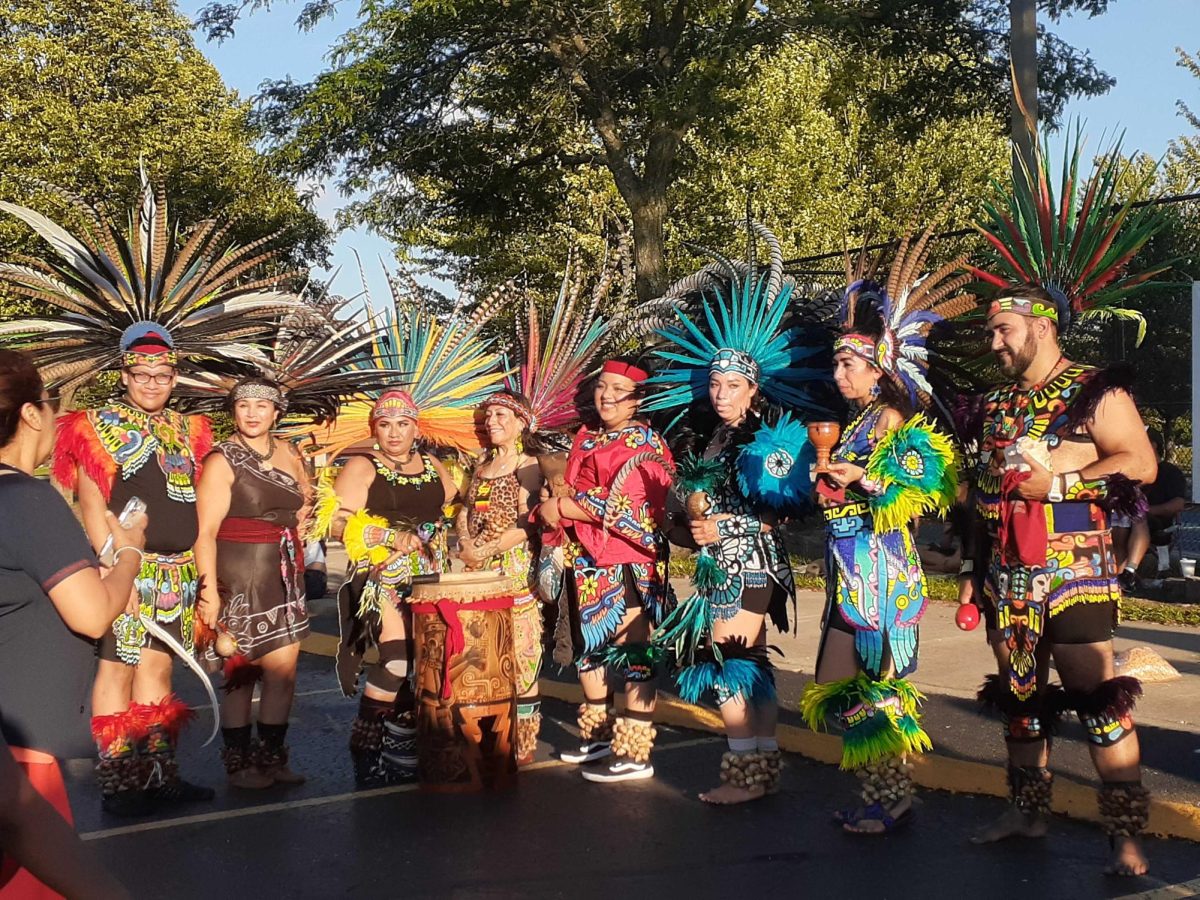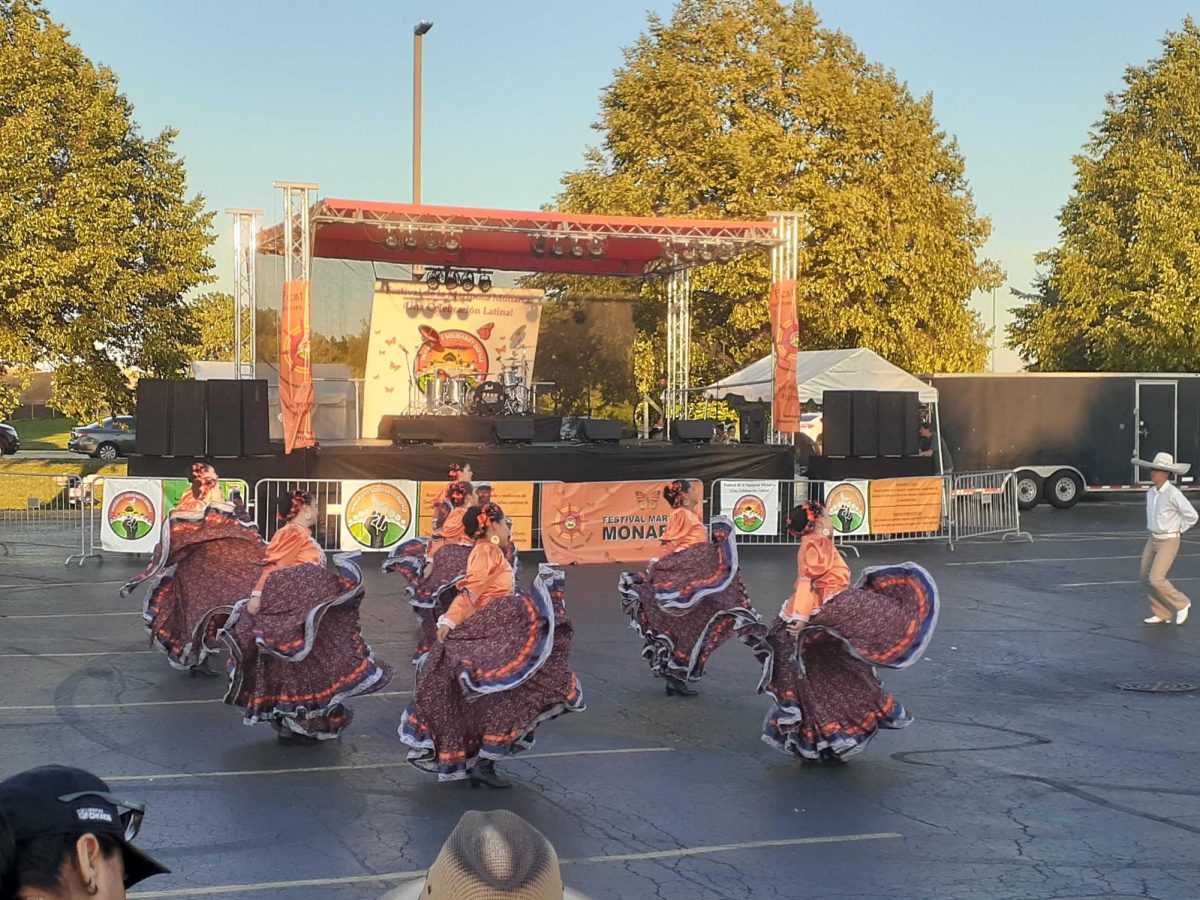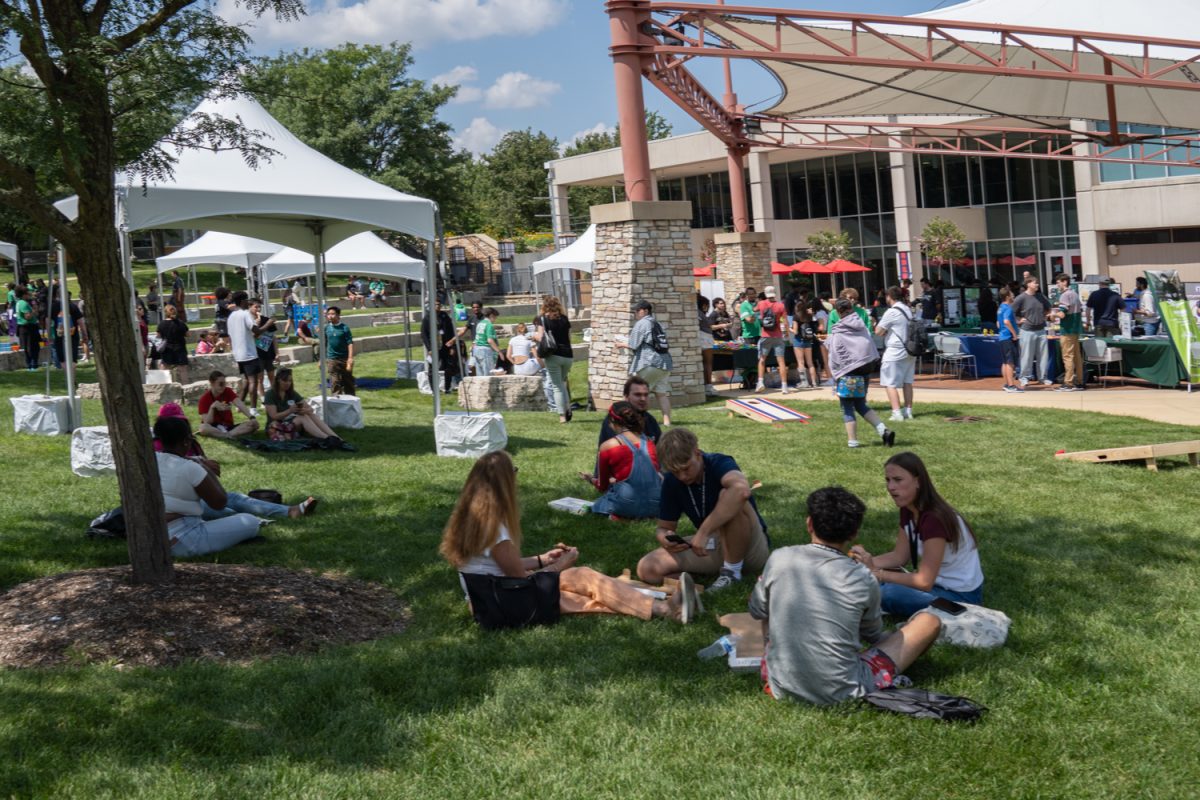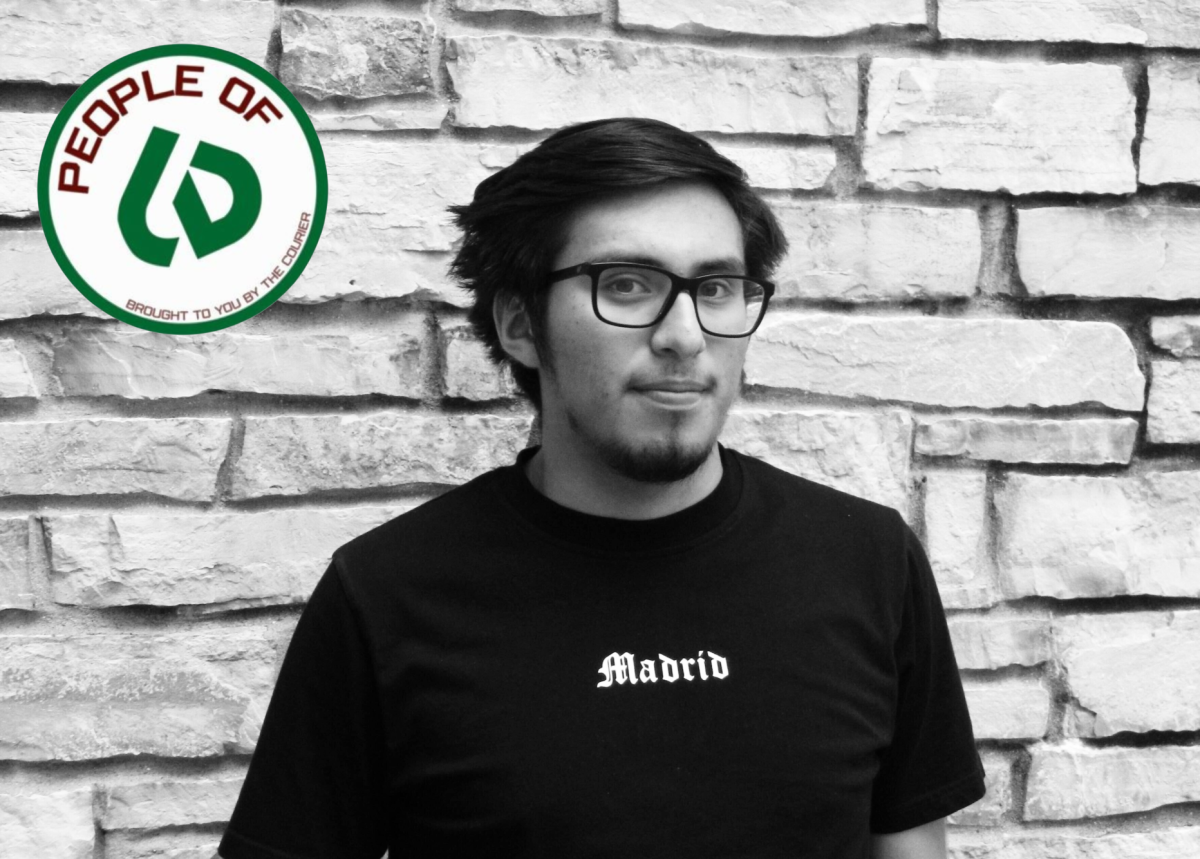Booming drums resounded through the park as dancers clad in colorful garbs performed traditional Aztec dances in front of an enthusiastic crowd. A series of performances at the event included ancient Conchero dances, swirling folklorico ballet and local Hispanic rock bands. They provided entertainment at the festival of the monarch butterfly, or festival de la mariposa monarca, in Glendale Heights, Ill. this month. This event takes place annually around Illinois, anchored by the Latino community hubs, such as the suburb of Glendale Heights.
It offers many aspects of Latino culture for the attendants. Families sat on outdoor benches in the center of the festival to enjoy meals, like elotes and birria tacos from local Mexican restaurants. There were over 20 booths, hosting everything from local vendors that sold handmade jewelry to a civic action booth by the League of Women Voters. There was also a booth by an environmental group, Saving Monarchs, that provided attendees with native plants for butterflies, as well as other educational and artistic pieces about monarch butterfly migration. The monarch butterfly symbolizes the theme of this year’s festival, “la magia de migracion,” or the magic of migration. Before the performances, Saving Monarchs facilitated the release of a monarch to promote their conservatory work in front of the audience.
The monarch butterfly’s annual migration patterns from North America to Mexico are also used as an emblem of immigrant solidarity and to celebrate the butterfly’s symbolism in the culture. This theme was highlighted during the butterfly release by speakers from Immigrant Solidarity DuPage and other civic action groups that sponsored the festival. They spoke in Spanish to the largely Hispanic audience and discussed migration and the resilience of Latino immigrants.
Many of the festival’s lead organizers also shared statements in a press release posted on Facebook before last year’s festival. Cristobal Cravajoz, a community activist and founder of Immigrant Solidarity DuPage, described how the monarch butterfly is symbolic to the Latino community. Cravajoz has been a leading community worker for a long time, since establishing the Immigrant Solidarity DuPage group in 2007.
“Our community, like the monarch, gives life, labor and love every day to make our economy turn, but we do it with style and always put family and friends first,” Cravajoz said. “We share that spirit at the festival for all to see, and we invite everyone to come meet your Latino neighbors and immerse yourself in our contagious love of community and celebration–something much needed in the ‘burbs. That is the Festival of the monarch butterfly.”
Cravajoz discussed the importance of the festival as a way for immigrants and vulnerable members of the community to find resources.
“As the local Latino community struggles with unfair immigration laws, the devastating impact of COVID on our community and the hard blow many of us have felt economically resulting in evictions disproportionately impacting us, we will have organizations like our Immigrant Solidarity DuPage, the Casa DuPage Workers Center, Live4Laly and the Heart Group of Dupage on hand to attend to the community’s economic and social needs.”
Cravajoz and members of Immigrant Solidarity DuPage work to mend issues that primarily impact immigrants, such as housing. The Latino Policy Forum released a report in March 2022 about housing rights issues faced by immigrant tenants, many of whom are Latino and may face discrimination by a landlord based on their real or perceived immigrant status. The report details their rights under the Immigrant Tenant Protection Act and resources they may seek if unfairly evicted or unable to find housing.
Other festival organizers also described how the event seeks to revitalize Latino identity in the suburbs through presenting traditional food, dances and hand-made memorabilia offered by the community vendors. This also opens other people in the community to Latino culture, helping to build bridges of connection. Rafael Vieyra, a festival organizer, said adapting to a new environment can be disorienting in many ways for immigrants, yet they find value in creating community bonds.
“We have so many times felt alienated from our new communities and homesick for our old ones,” Vieyra explained. “But here we seek intentionally to foster community, celebrate our Mexican identity in the face of rapid assimilation that often finds our children incapable of communicating with us to show just how vital we are to our new homes. Like the monarch butterfly, we Mexicans spend so much of our lives working and adding value to wherever we go. But we are not just our work, we know how to celebrate life, friends and our families, and we love our new communities of Glendale Heights, West Chicago and Addison.”
These themes reverberated throughout the festival, as community members spoke with the artisans and small business owners at each booth, some of whom were immigrants themselves. Youth and families from the nearby playground were also attracted to the festival, enjoying the music and dance performances that lasted through the evening. These things made the festival distinguishable as a representative of the Hispanic community of Glendale Heights and the greater Chicagoland area, and the festival is slated to return next summer, too.
To partake in events hosted by Immigrant Solidarity DuPage and other community groups, visit their website or Facebook page.










